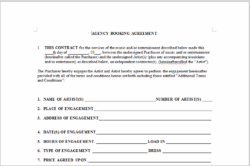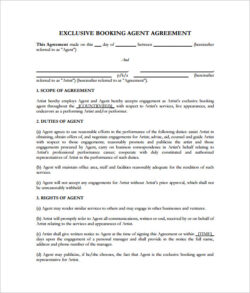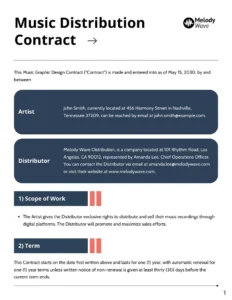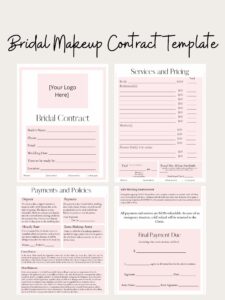Stepping into the professional music industry as an artist often feels like navigating a thrilling but complex maze. While your passion might be creating incredible tunes, the business side of things, particularly securing the right representation, is just as crucial for a sustainable career. A great manager can be the catalyst for your success, handling everything from booking gigs to negotiating deals, but the foundation of this vital partnership is always a clear, comprehensive agreement.
This is where a well-drafted music artist management contract template becomes an invaluable tool. It’s not just a piece of paper; it’s a detailed roadmap that outlines the expectations, responsibilities, and compensation for both the artist and the manager, ensuring both parties are protected and aligned in their pursuit of your artistic and commercial goals. Having a solid understanding of this document is paramount before you put pen to paper.
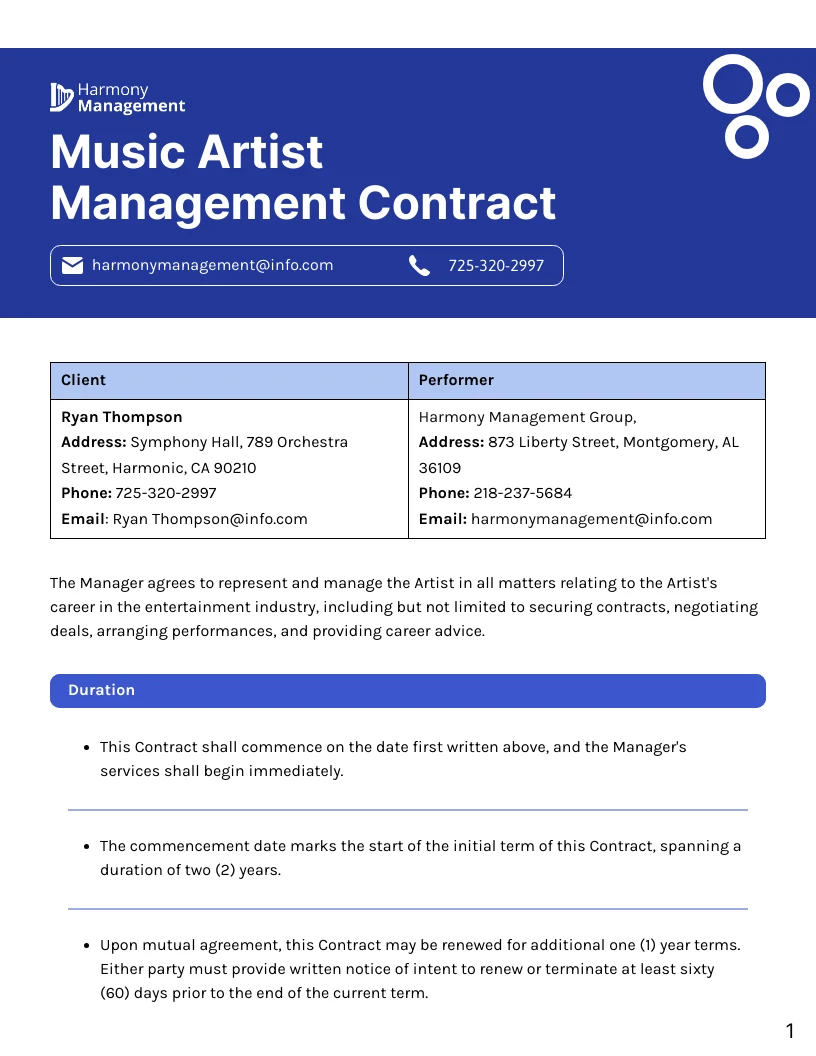
What Should a Robust Music Artist Management Contract Template Include?
When you’re looking at a music artist management contract template, you’ll notice it’s much more than a simple handshake agreement. It’s a comprehensive legal document designed to cover every facet of the artist-manager relationship. Getting these details right from the start prevents misunderstandings and potential disputes down the line, allowing both parties to focus on what truly matters: building a successful music career.
Defining the Relationship: Term and Exclusivity
One of the first things any good template will address is the term of the agreement, meaning how long the contract will last. This can vary significantly, from a few years to longer durations, often with options for renewal. Equally important is the concept of exclusivity. Most management agreements are exclusive, meaning you, as the artist, will only work with this one manager during the contract period. This protects the manager’s investment of time and resources into your career, ensuring they are the sole beneficiary of their efforts. You’ll also find clauses defining the territories where the manager’s services apply, whether it’s local, national, or worldwide.
The Manager’s Role: What to Expect
This section is crucial as it details the core responsibilities of your manager. It outlines the scope of their services, which typically include advising and counseling you on all aspects of your music career. This can encompass everything from career development and strategic planning to booking performances, negotiating recording and publishing deals, coordinating marketing and publicity efforts, and managing your public image. A strong template clearly articulates these duties, ensuring you know exactly what services you are paying for and what level of support you can anticipate.
The Artist’s Commitment: What’s Required
While the manager has significant responsibilities, the artist also has obligations outlined in the contract. This usually includes agreeing to dedicate sufficient time and effort to their music career, cooperating with the manager’s reasonable requests, and performing their artistic duties to the best of their ability. It also covers things like being available for performances, studio sessions, and promotional activities. Furthermore, the contract will usually require the artist to consult with the manager on important career decisions, reinforcing the partnership aspect of the relationship.
Money Matters: Compensation and Expenses
Naturally, a significant portion of the contract will be dedicated to financial terms. This includes the manager’s commission rate, which is typically a percentage of your gross income derived from your music career. This percentage can vary (often between 10-20%) depending on the manager’s experience and the artist’s stage of career. The template will also specify which income sources are commissionable and how expenses incurred by the manager on behalf of the artist will be handled. Often, these expenses are recoupable, meaning they are paid back to the manager from the artist’s earnings before the artist receives their share. Transparency in this section is absolutely key for a healthy working relationship.
Key Provisions Checklist
- Term of Agreement (Duration and Renewal Options)
- Territory of Engagement (Geographic Scope)
- Exclusivity Clause (Artist Representation)
- Manager’s Specific Duties and Responsibilities
- Artist’s Commitments and Cooperation Requirements
- Commission Rates and Calculation Methods
- Recoupable Expenses and Payment Schedules
- Audit Rights for Financial Transparency
- Termination Clauses (Conditions for Ending the Agreement)
- Dispute Resolution Mechanisms (Mediation, Arbitration)
- Governing Law
Beyond the Template: Important Considerations Before Signing
Having access to a music artist management contract template is an excellent starting point, but it’s crucial to remember that a template is just that – a starting point. Every artist-manager relationship is unique, and while the core structure remains, specific clauses often need tailoring to fit individual circumstances, career stages, and mutual expectations. Taking a generic template and signing it without thorough review is a common pitfall that can lead to significant headaches down the road.
Before you commit to anything, carefully consider the nuances of your specific situation. Think about your short-term and long-term career goals and discuss them openly with your potential manager. Does the contract truly reflect the understanding you both have? Are the termination clauses fair to both parties, should the relationship not work out as planned? It’s essential to understand not just what the contract says, but also what it might imply for your future creative and financial autonomy.
Another critical step is to always, without exception, have a qualified entertainment lawyer review any management agreement before you sign it. They can identify potential red flags, explain complex legal jargon in plain English, and negotiate terms that are more favorable to you. While a template provides a solid foundation, a legal professional ensures that the document genuinely protects your interests and aligns with industry standards, preventing you from inadvertently agreeing to terms that could hinder your career or financial well-being.
Consider these vital questions:
- Does the manager have a proven track record relevant to your genre and career stage?
- Are the commission rates and expense clauses reasonable and transparent?
- What are the specific conditions under which either party can terminate the agreement?
- Are there clear provisions for resolving disagreements or disputes?
These considerations, coupled with professional legal advice, will transform a basic music artist management contract template into a personalized, robust agreement that truly serves as the bedrock of a successful partnership.
Ultimately, entering into a management agreement is a significant step in your music career. It’s a partnership built on trust, shared vision, and a clear understanding of roles and responsibilities. By taking the time to fully comprehend and customize the terms within a contract, you are laying a strong foundation for a productive and mutually beneficial relationship with your manager. This diligence ensures that both parties can focus on artistic growth and commercial success, rather than being bogged down by contractual ambiguities.
